第97章 THE FIRST(13)
In the development of intellectual modesty lies the growth of statesmanship.It has been the chronic mistake of statecraft and all organising spirits to attempt immediately to scheme and arrange and achieve.Priests, schools of thought, political schemers, leaders of men, have always slipped into the error of assuming that they can think out the whole--or at any rate completely think out definite parts--of the purpose and future of man, clearly and finally; they have set themselves to legislate and construct on that assumption, and, experiencing the perplexing obduracy and evasions of reality, they have taken to dogma, persecution, training, pruning, secretive education; and all the stupidities of self-sufficient energy.In the passion of their good intentions they have not hesitated to conceal fact, suppress thought, crush disturbing initiatives and apparently detrimental desires.And so it is blunderingly and wastefully, destroying with the making, that any extension of social organisation is at present achieved.
Directly, however, this idea of an emancipation from immediacy is grasped, directly the dominating importance of this critical, less personal, mental hinterland in the individual and of the collective mind in the race is understood, the whole problem of the statesman and his attitude towards politics gain a new significance, and becomes accessible to a new series of solutions.He wants no longer to "fix up," as people say, human affairs, but to devote his forces to the development of that needed intellectual life without which all his shallow attempts at fixing up are futile.He ceases to build on the sands, and sets himself to gather foundations.
You see, I began in my teens by wanting to plan and build cities and harbours for mankind; I ended in the middle thirties by desiring only to serve and increase a general process of thought, a process fearless, critical, real-spirited, that would in its own time give cities, harbours, air, happiness, everything at a scale and quality and in a light altogether beyond the match-striking imaginations of a contemporary mind.I wanted freedom of speech and suggestion, vigour of thought, and the cultivation of that impulse of veracity that lurks more or less discouraged in every man.With that I felt there must go an emotion.I hit upon a phrase that became at last something of a refrain in my speech and writings, to convey the spirit that I felt was at the very heart of real human progress--love and fine thinking.
(I suppose that nowadays no newspaper in England gets through a week without the repetition of that phrase.)My convictions crystallised more and more definitely upon this.The more of love and fine thinking the better for men, I said; the less, the worse.And upon this fresh basis I set myself to examine what Ias a politician might do.I perceived I was at last finding an adequate expression for all that was in me, for those forces that had rebelled at the crude presentations of Bromstead, at the secrecies and suppressions of my youth, at the dull unrealities of City Merchants, at the conventions and timidities of the Pinky Dinkys, at the philosophical recluse of Trinity and the phrases and tradition-worship of my political associates.None of these things were half alive, and I wanted life to be intensely alive and awake.
I wanted thought like an edge of steel and desire like a flame.The real work before mankind now, I realised once and for all, is the enlargement of human expression, the release and intensification of human thought, the vivider utilisation of experience and the invigoration of research--and whatever one does in human affairs has or lacks value as it helps or hinders that.
With that I had got my problem clear, and the solution, so far as Iwas concerned, lay in finding out the point in the ostensible life of politics at which I could most subserve these ends.I was still against the muddles of Bromstead, but I had hunted them down now to their essential form.The jerry-built slums, the roads that went nowhere, the tarred fences, litigious notice-boards and barbed wire fencing, the litter and the heaps of dump, were only the outward appearances whose ultimate realities were jerry-built conclusions, hasty purposes, aimless habits of thought, and imbecile bars and prohibitions in the thoughts and souls of men.How are we through politics to get at that confusion?
We want to invigorate and reinvigorate education.We want to create a sustained counter effort to the perpetual tendency of all educational organisations towards classicalism, secondary issues, and the evasion of life.
We want to stimulate the expression of life through art and literature, and its exploration through research.
We want to make the best and finest thought accessible to every one, and more particularly to create and sustain an enormous free criticism, without which art, literature, and research alike degenerate into tradition or imposture.
Then all the other problems which are now so insoluble, destitution, disease, the difficulty of maintaining international peace, the scarcely faced possibility of making life generally and continually beautiful, become--EASY....
It was clear to me that the most vital activities in which I could engage would be those which most directly affected the Church, public habits of thought, education, organised research, literature, and the channels of general discussion.I had to ask myself how my position as Liberal member for Kinghamstead squared with and conduced to this essential work.